EdgeAI-Trust aims to develop secure, upgradeable, and reliable hardware, software, and tools for decentralized Edge AI. This includes AI algorithms, devices, and standard APIs for seamless integration across systems in a zero-trust environment, aligning with Europe’s privacy-driven and sustainability goals. The project also focuses on enhancing energy efficiency, managing system complexity, and extending device lifespans, contributing to the European Green Deal and promoting sustainable development.
EdgeAI-Trust envisions creating a trustworthy edge AI ecosystem that includes advanced AI architectures, components, orchestration techniques, development tools, and a collaborative community to enable real-time interaction among heterogeneous edge devices. The project focuses on maintaining the highest levels of security, scalability, sustainability, and robustness, even in dynamic zero-trust environments. It aims to develop domain-independent, large-scale edge AI technologies that allow devices to learn, adapt, and coordinate securely while enhancing trustworthiness, reliability, safety, energy efficiency, and societal acceptance. By virtualizing distributed AI resources for federated learning and standardizing interfaces, EdgeAI-Trust seeks to build a European edge AI ecosystem that supports next-generation smart industries, cities, and agriculture, in line with the vision of Society 5.0. The project will demonstrate the impact of these technologies in key application domains, driving sustainable innovation.
The project’s main objectives are as follows:
- Develop a trustworthy domain-independent AI architecture
- Create reliable and collaborative large-scale edge AI solutions
- Increase the trustworthiness of edge AI solutions
- Develop toolchains for optimizing and validating edge AI solutions
- Large-Scale Impact and Economic Leadership through EdgeAI EDEM Platform
The motivation for the EdgeAI-Trust project stems from Europe’s need to maintain a competitive edge in the global technology market, particularly after losing ground in the cloud market for chips and software. Edge AI-Trust presents an opportunity for Europe to specialize in a technology aligned with its decentralized, privacy-driven policies and environmental goals, such as the Green Deal. As digitalization expands across various industries, decentralized edge AI is becoming crucial for efficient, secure, and scalable data processing. It addresses challenges like energy efficiency, faster data processing, and cybersecurity, making it a key technology for Society 5.0 and Industry 5.0.
The semiconductor industry plays a vital role in developing specialized chips for edge AI, further driving Europe’s leadership in this transformative technology. Despite its potential, decentralized edge AI faces technical and economic challenges that need to be addressed through innovation and investment.
ITML’s role in the project
ITML leads efforts towards user acceptance and business analysis. ITML is responsible for preparing and presenting models about user opinion and acceptance leading to enhanced social trust about the European edge intelligence industry in several application domains. These activities will also deliver a knowledge base, which will serve the project’s diffusion and training activities. Such knowledge will be the basis to deploy, in parallel, market and business tools and approaches around the Edge AI industry and stakeholders. In addition, ITML contributes to the elicitation of requirements, architecture definition and technological development, leveraging AI expertise to advance edge-AI solutions. Complementary to the aforementioned activities, ITML uses market analysis expertise to identify trends and growth opportunities for edge-AI technologies.
For more information, visit the official project website: https://www.edgeai-trust.eu/
Acknowledgments
The project EdgeAI-Trust has received funding from the Chips Joint Undertaking (Chips JU) and its members (including top-up funding by the National Authority of Cyprus, the Research & Innovation Foundation – RIF) under Grant Agreement No. 101139892. The project is co-funded by the EU within the framework of the Cohesion Policy Programme “THALIA 2021-2027”.
